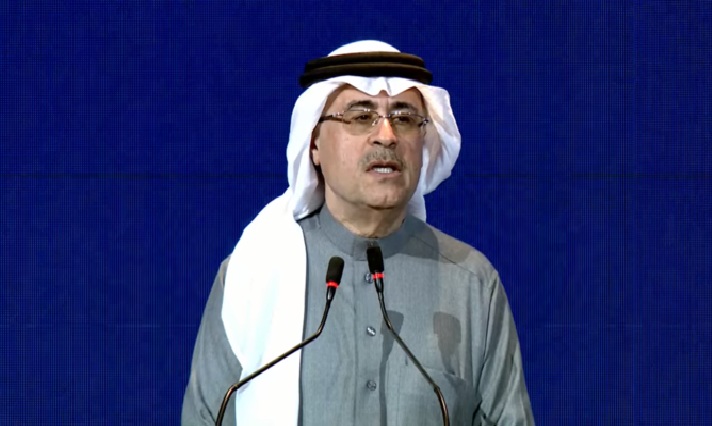RIYADH (Agencies): Energy transition policies and goals have created a dangerous path for global demand, as alternatives are not in position to supply the entire world, the CEO of Aramco has warned.
During the Saudi Capital Market Forum held in Riyadh, Amin Nasser, CEO and president of Saudi Aramco, gave a speech warning capital markets of the ripple created in global energy supply due to unrealistic energy transition plans.
“Popular energy transition narratives paint a picture of a utopian world where alternatives are ready to replace oil and gas overnight. They assume the massive global energy system in many developing countries can be transformed instantly,” he said.
“Alternatives are not ready to shoulder the heavy burden of global demand. From my perspective, for a less risky global energy transition, everyone including capital markets must take a more realistic view of how the energy transition will unfold,” Nasser added.
He explained that investments in oil and gas have fallen drastically as upstream investments in 2022 were at $400 billion half of the peak in 2014. He further added that the reason was due to pressure caused by “flawed arguments and assumptions.”
“We should be concerned that continuing to impose energy transition plans will lead to unintended consequences, that include but are not limited to, compromising affordability, creating energy insecurity, and bringing back people to burn more coal and more animal waste. Something that is already happening,” he added.
Nasser stated that finding the right balance is the main challenge for global capital markets, by financing new energy sources while continuing to support conventional energy and its decarbonization.
He further added that the current imbalance is leading to a dangerous path, as emerging markets are already struggling with high energy costs.
In 2022, the world committed $1.1 trillion toward the global energy transition. However, investment in two main areas, carbon capture storage and clean hydrogen, amounted to less than one percent of the total investment, he explained.
“Capital markets have an obvious opportunity to concurrently address the trilemma of energy affordability, energy security, and sustainability by restoring investment in vital conventional energy sources, increasing investment in technology that reduces the carbon footprint of oil and gas, and investing in new energy sources including renewables and green and blue hydrogen,” he concluded.







